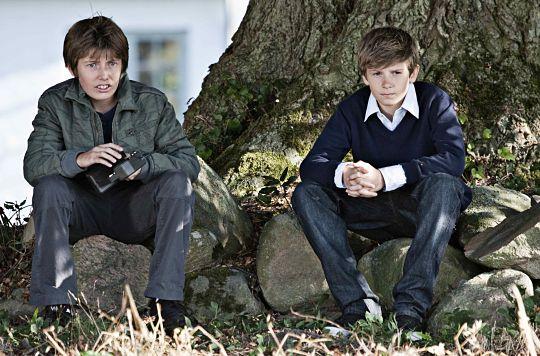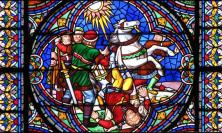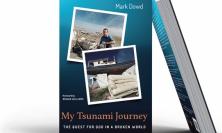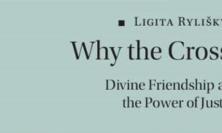Director: Susanne Bier
Starring: Mikael Persbrandt, Trine Dyrholm, Markus Rygaard, William Jøhnk Juels Nielsen
UK Release date: 19 August 2011
Certificate: 15 (119 mins)
Winner of both the Academy Award and the Golden Globe for Best Foreign Language Film, In a Better World (originally titled Hævnen, meaning ‘revenge’ in Danish) is about two twelve-year-old boys. Christian has just returned to Denmark from London where he had been living until his mother died. Angry and hurt but unwilling to communicate, he lives with his father and grandmother, though his father spends much of his time in London. He arrives at school to find himself sitting in class next to Elias, an easy-going boy victimised by the school bully. Elias lives with his mother and younger brother. His parents are separated, and his father Anton, who is also a focus of the story, takes extended trips to Africa where he works as a doctor.
As the story unfolds, we begin to see parallels between war-torn Africa and quiet Denmark, two worlds which on the surface have very little in common. But in both places there are people driven by a greed for power, a need to feel superior. In Denmark, we see the school bully who picks on smaller children and who reacts instinctively with violence and the man who assaults and intimidates others just because he can. Is there a difference between their cruelty and that of the Big Man in Africa, who terrorises the local population and mutilates pregnant women for fun? Is it only a question of opportunity that separates the suburban Danish bully from the African war criminal? What is it in people that makes them behave so cruelly towards others with no regard for their humanity? How can a ‘civilised’ society where all of a person’s physical needs are provided for still produce individuals with the same mentality as monsters spawned from war and deprivation?
The complementary, and perhaps slightly more dominant theme, is the dislocation between the world of adults and that of children. The children are told that violence only begets more violence, but all Christian knows is that when he beats up the bully it means no one will dare touch him again. And when Anton shows them how to stand up to another bully, the boys are confused. We see the other man’s meanness and frustration, the unacknowledged sense of inferiority that causes him to lash out, and we agree with Anton that the bully has lost, but the boys only see a bully who will carry on being a bully unless someone teaches him a lesson through greater violence. Anton is forced to witness the consequences of human cruelty in Africa and to confront his own actions when faced with such atrocities, but he fails to see the explosive tensions that run beneath the surface of his son’s life and threaten to rip his family apart.
Although these themes create a strong undercurrent, they mainly keep to the background and are there to be contemplated after the credits have begun to roll. The story and the characters dominate, but even the story is not one with a clear beginning or a clear end. That is to say, the film stops where it should – after the climax and the resolution, but there is a sense that the story continues, that the characters go on living their lives and reaping the consequences of the events of the film, even if we are not there to witness it.
Violence is a huge part of this film, but it is never gratuitous, which in a way makes it more frightening. We are rightly horrified by the senseless brutality and callousness of the Big Man, but how do we feel when he is left at the mercy of his victims and their families? Are we satisfied that a bad man has been punished? Or do we condemn the others for showing and acting on the base animalism in their own natures? And when Christian attacks the bully, is there a definite point at which we can all agree that he has gone too far? But the violence is not merely there in the character’s actions. A tension constantly reappears throughout the film which comes from the possibility of violence, which is best portrayed through the character of Christian and his almost unchanging sullen, angry expression. He is too young to know how to deal with the grief of his mother’s death, and he has no one who can serve as an outlet for this grief. The frustrated emotion builds up inside him, and we can only watch and wait to see how his grief and frustration will ultimately express themselves.
In a Better World is, above all, a very human film. It tells a very recognisable story, not so much in its specifics, but in the shared experiences it portrays: friendship, family, grief and healing. By turns touching and frightening, it is a thought-provoking film and an entirely worthwhile experience.
Kristina Glicksman
![]() Visit this film's official web site
Visit this film's official web site






